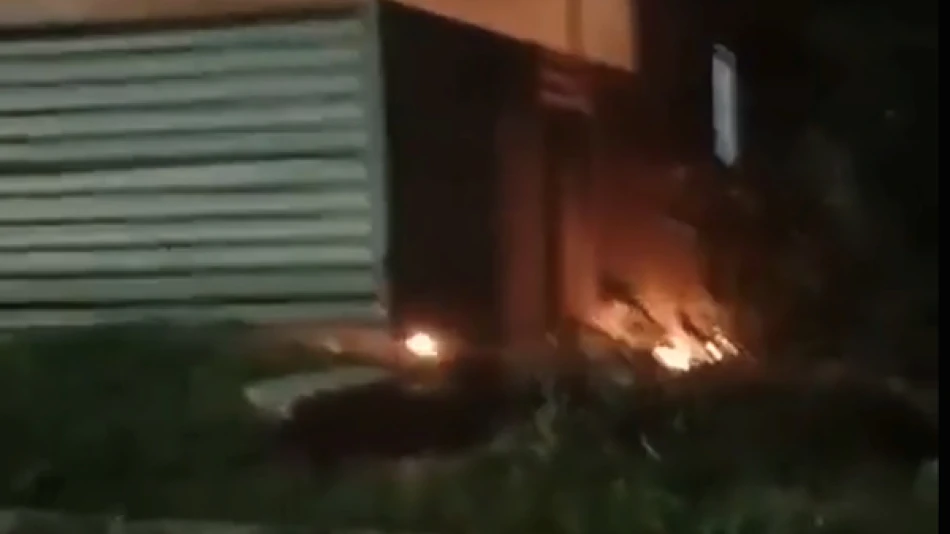
Ukraine Strikes Russian Oil Pumping Station in Cross-Border Raid
Ukraine Strikes Critical Russian Oil Infrastructure, Disrupting Major European Pipeline
Ukrainian forces have successfully targeted a strategic oil pumping station in Russia's Tambov region, causing a complete shutdown of the Druzhba pipeline—one of Europe's most important oil arteries. The drone strike, which sparked fires at the facility, represents a significant escalation in Ukraine's campaign to disrupt Russian energy exports that fund Moscow's war effort.
Strategic Impact on European Energy Markets
The Druzhba pipeline, whose name means "friendship" in Russian, carries approximately 1 million barrels of crude oil daily to Central and Eastern European countries including Hungary, Slovakia, Czech Republic, and Poland. This infrastructure attack could trigger immediate supply concerns and price volatility in regional energy markets, particularly affecting countries that remain partially dependent on Russian oil despite EU sanctions.
The timing of this strike is particularly significant as European nations continue their gradual decoupling from Russian energy sources. While most EU countries have implemented oil embargoes since Russia's invasion began, several Central European nations secured exemptions for pipeline deliveries due to their geographic isolation from alternative supply routes.
Ukraine's Evolving Military Strategy
Targeting Economic Lifelines
This attack demonstrates Ukraine's increasingly sophisticated approach to asymmetric warfare, focusing on high-value economic targets rather than purely military installations. By disrupting oil infrastructure deep within Russian territory, Ukrainian forces are directly attacking the revenue streams that sustain Moscow's military operations.
The successful strike on Tambov region—located several hundred kilometers from the Ukrainian border—also showcases the extended range and precision of Ukraine's drone capabilities, likely enhanced by Western intelligence and technology transfers.
Precedent for Infrastructure Warfare
Similar attacks on Russian energy infrastructure have occurred throughout 2024, including strikes on refineries and storage facilities. However, targeting a major international pipeline represents a qualitative escalation that could have broader diplomatic implications, particularly with European nations still receiving Russian oil through these routes.
Market and Geopolitical Implications
Energy traders will likely monitor the duration of the pipeline shutdown closely, as extended disruptions could force affected European countries to accelerate their search for alternative suppliers. This scenario would benefit oil producers like Saudi Arabia, the UAE, and the United States, while potentially straining global supply chains already stressed by Middle Eastern tensions.
For Russia, the attack represents both an economic blow and a symbolic defeat. The Druzhba pipeline has been a cornerstone of Soviet and Russian energy diplomacy for decades, serving as a tool of political influence across Eastern Europe. Its vulnerability to Ukrainian strikes undermines Moscow's narrative of military superiority and territorial security.
The incident also tests the resolve of European nations that have maintained energy ties with Russia despite the ongoing conflict. Countries like Hungary, which has consistently opposed broader EU sanctions on Russian energy, may face renewed pressure to diversify their supply sources as infrastructure attacks make Russian deliveries increasingly unreliable.
Most Viewed News

 Layla Al Mansoori
Layla Al Mansoori






